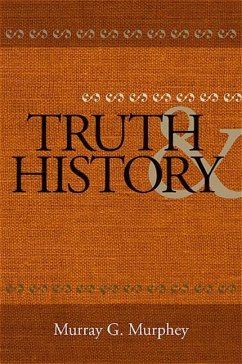Nicht lieferbar

Telling the Truth about History
Versandkostenfrei!
Nicht lieferbar
We have lost our grip on historical truth. Popular films depict subterranean conspiracies that shape historical events and public knowledge of those events. Best-selling narrative histories dissolve the border between fact and fiction, allowing the author's imagination to roam freely. Influential critics dissolve the author herself into one among many sources of meaning, reducing historical knowledge to a series of texts engaged with each other, not with the past. Powerful constituencies call for histories that affirm more than inform. This new book by three of our most accomplished historians...
We have lost our grip on historical truth. Popular films depict subterranean conspiracies that shape historical events and public knowledge of those events. Best-selling narrative histories dissolve the border between fact and fiction, allowing the author's imagination to roam freely. Influential critics dissolve the author herself into one among many sources of meaning, reducing historical knowledge to a series of texts engaged with each other, not with the past. Powerful constituencies call for histories that affirm more than inform. This new book by three of our most accomplished historians engages the various criticisms that have fragmented the authority of historical knowledge. Although acknowledging degrees of legitimacy in the criticisms, the authors launch a pragmatic response that supports the historian, as they put it, in her long climb, notebook computer in tow, up the 300 stairs to the archives in Lyon. Even if historical truth is an ever-receding goal, the effort to approach it, they show, is legitimate, worthy, and governed by agreed-upon rules. And while affirming the claims of women and ethnic minorities to a rightful place in any narrative of American history, the authors insist on the accountability of history. They outline a coherent narrative of the American past that incorporates its multicultural dimension without special pleading.








